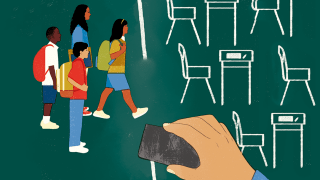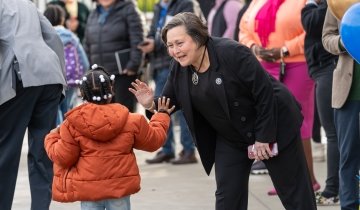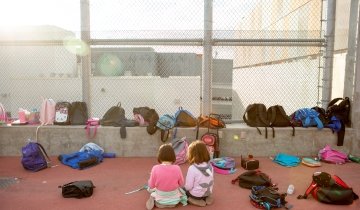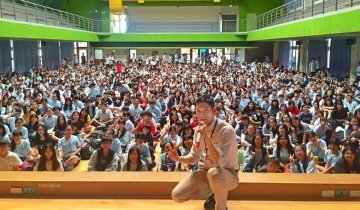San Diego County Superintendent Paul Gothold EdD ’17 has been an educator for 30 years, but he didn’t intend to be. A business major, he ended up in the classroom in 1992 and fell in love with teaching. In Gothold’s fourth year of teaching, a principal pulled him aside and asked him to help mentor other teachers. Once Gothold saw the impact he could have in scaling his knowledge and techniques for working with students, he was hooked, and he moved into a leadership role as an assistant principal.
“I was fortunate that people saw skills in me at that time that I didn’t necessarily see in myself,” he said. Seeing the potential in students that others might not see is something that drives Gothold today as he leads the San Diego County Office of Education (SDCOE) in improving learning conditions so all students can be college-ready.
SDCOE serves the region’s most vulnerable students, supporting nearly 500,000 students and 42 school districts. With the county touching the U.S.-Mexico border, SDCOE has served unaccompanied minors and transborder students, or those who cross the U.S.-Mexico border to attend school. While the exact number of transborder students is unknown, it’s estimated that the Tijuana-San Diego region has thousands.
One program that Gothold led to support unaccompanied minors was Futuro Brillante at the San Diego Convention Center, which served as a temporary shelter for them in 2021. The ad hoc school ran classes twice a week for two hours a day, serving over 3,500 students for four months. The effort drew employees from across SDCOE departments to create a curriculum, teach, and provide materials, technical needs and translation support for unaccompanied migrant students.
Despite threats made to his family as a result of the program, Gothold persevered. “Those threats were addressed, but they are indicative of what we can come up against when we try to educate young people who are in extremely difficult circumstances,” Gothold said.
In accommodating the transborder students, Gothold spoke proudly of the Global Academy of California, a National City-based college-preparatory independent study program for ninth- through 12th-graders designed to foster students’ global competency. The Global Academy affords both local and transnational students the flexibility to earn a high school diploma based on articulated criteria recognized by SDCOE.
“The success of the Global Academy led to more conversations with Mexico,” Gothold said, including the development of a binational diploma that would be good on both sides of the border. “The goal is to make sure that the kids have access to skills and learning opportunities regardless of which side they live on. There are benefits to the whole region by ensuring that young people are prepared academically to contribute to society.”
Professor of Clinical Education Darline Robles, a former superintendent of the Los Angeles County Office of Education, has served as a role model and mentor during Gothold’s career. “It has been a privilege to have worked with Paul and witness his career trajectory, from teacher, principal and superintendent,” she said. “His genuine love for students, staff and the community he serves is what drives him to be a servant leader.”
Gothold credits USC Rossier for providing him with theories and research-based evidence to validate the work that he has done on behalf of marginalized students. “I taught probation-expelled kids in L.A. County. I saw how students were excluded from the education system. We had to rebuild these students and restore their hope. I loved watching kids turn their lives around,” said Gothold. “USC gave me a framework and access to research that I could hang onto and explain the ‘why’ to people about how to better serve historically marginalized communities.





